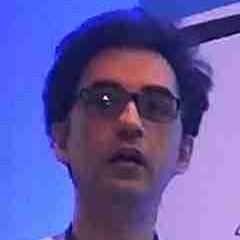Hands-On Science: Developing a Sustainable Education System
A special issue of Sustainability (ISSN 2071-1050). This special issue belongs to the section "Sustainable Education and Approaches".
Deadline for manuscript submissions: closed (31 May 2023) | Viewed by 17547
Special Issue Editors
Interests: applied optics; photonics; optical engineering; hands-on science; science education; training of teachers; sustainability
Special Issues, Collections and Topics in MDPI journals
Interests: optical metrology; image processing; thin films, micro- and nanostructures and systems; optics and science education
Special Issues, Collections and Topics in MDPI journals
Interests: self-regulated learning; teaching methods in science education; sustainability
Special Issues, Collections and Topics in MDPI journals
Special Issue Information
Dear Colleagues,
World sustainable development, both in economic and social terms, strengthening the democracy and social cohesion in our societies alongside high levels of human development with respect to the United Nations Charter of Human Rights, should be a goal of all countries and of each one of us. The importance of science, both the pursuit of knowledge and the search for practical uses of scientific knowledge, is widely recognised at all levels in modern societies. A strong and enlarged scientific literacy is not only fundamental to the development of science and technology, but also to a democratic citizenship. In most countries, a distinct lack of science technicians and science and technology teachers is being registered. Driven by this fact, science is gaining an increasing importance in school education. It is hopeful that, by also recognising the importance of study and training in science in the development of our youngsters’ personalities and abilities, both professional and social changes in school curricula are being implemented in most countries, clearly giving science a higher importance. However, these improvements in the levels of quality and effectiveness in school science education can hardly be achieved without an effective change in the way science education is traditionally approached in our schools. The method that drives the pursuit of scientific knowledge should be the driving and guiding basis of all processes of in-school teaching/learning of science, leading the students towards an active volunteer commitment to hands-on experimental science learning activities: observing, analysing critically, deducing, reasoning, defining, discussing, experimenting… and, as such, “making” (learning) science as scientists do.
We are honoured to serve as Guest Editors of this Special Issue to be published in Sustainability, which will contain papers related to the field of experimental science education that describe "hands-on" experiences and research as a path to sustainable education. Research with IBSE, Maker, Do it Yourself, Do It With Others, Design Thinking, Low-Cost Science or Experimental Citizen Science approaches that contributes to the improvement of science education, both from formal and non-formal education, will also be appreciated. We warmly invite researchers to submit their contributions, both original research articles and review papers, to this Special Issue.
Prof. Dr. José Benito Vázquez Dorrío
Prof. Dr. Manuel Filipe P. C. M. Costa
Prof. Dr. Miguel Ángel Queiruga Dios
Guest Editors
Manuscript Submission Information
Manuscripts should be submitted online at www.mdpi.com by registering and logging in to this website. Once you are registered, click here to go to the submission form. Manuscripts can be submitted until the deadline. All submissions that pass pre-check are peer-reviewed. Accepted papers will be published continuously in the journal (as soon as accepted) and will be listed together on the special issue website. Research articles, review articles as well as short communications are invited. For planned papers, a title and short abstract (about 100 words) can be sent to the Editorial Office for announcement on this website.
Submitted manuscripts should not have been published previously, nor be under consideration for publication elsewhere (except conference proceedings papers). All manuscripts are thoroughly refereed through a single-blind peer-review process. A guide for authors and other relevant information for submission of manuscripts is available on the Instructions for Authors page. Sustainability is an international peer-reviewed open access semimonthly journal published by MDPI.
Please visit the Instructions for Authors page before submitting a manuscript. The Article Processing Charge (APC) for publication in this open access journal is 2400 CHF (Swiss Francs). Submitted papers should be well formatted and use good English. Authors may use MDPI's English editing service prior to publication or during author revisions.
Keywords
- hands-on science
- scientific literacy
- curricular integration
- innovation
- SDG
- Maker
- IBSE
- DT
- DiY
- DiWO
- low-cost science
- science education
- experimental citizen science







